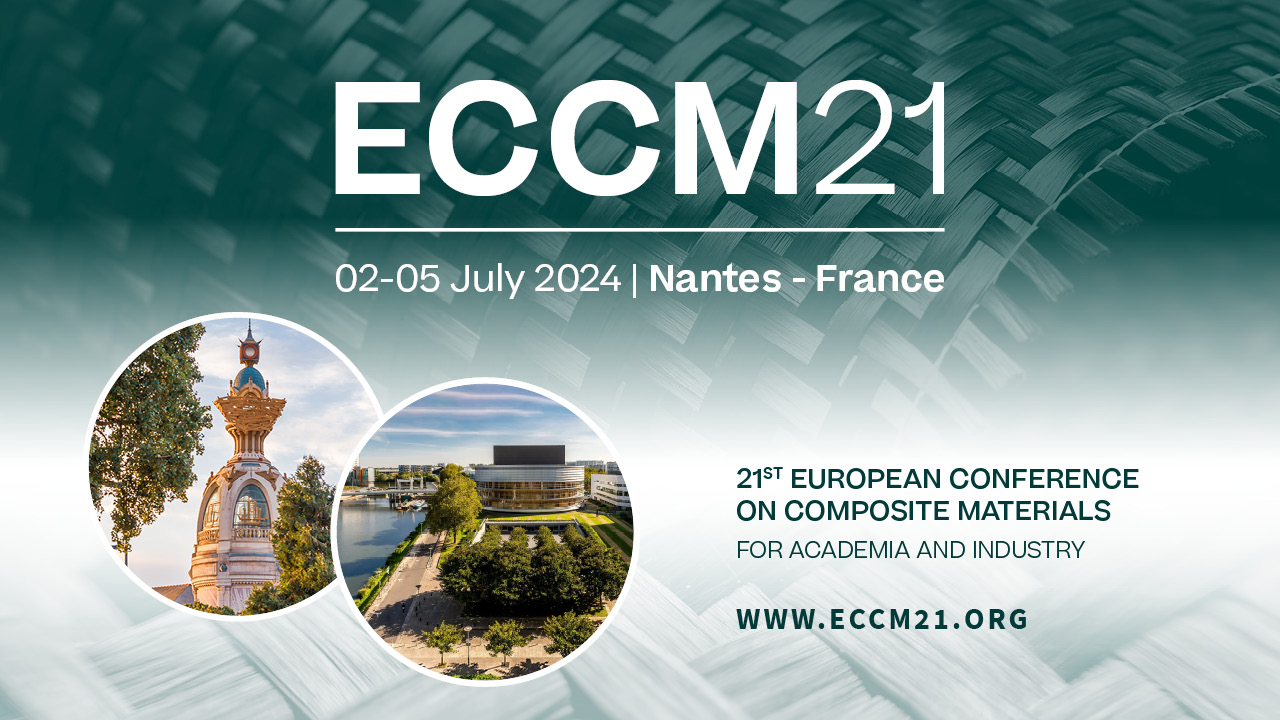Demonstration and testing of a process chain for the realignment of discontinuous random-oriented recycled carbon fibers into a unidirectional tape
Topic(s) : Life cycle performance
Co-authors :
Felix TEICHMANN (GERMANY), Christoph KLEMM (GERMANY), Michael SAUER , Violetta SCHUMM (GERMANY), Mesut CETINAbstract :
Carbon fibres are a valuable material with excellent mechanical properties that make it highly desirable for use in a wide range of applications, including aerospace, automotive, and sporting goods. However, the production of fibres is a resource-intensive process.
Recycling holds the potential to significantly reduce both costs and the environmental impact of carbon fibers. Some semi-finished materials are made from recycled carbon fibers (rCF). However, products utilizing recycled carbon fiber (rCF) are still uncommon in the composite industry. A key obstacle is the loss of fiber orientation during the recycling process, preventing the attainment of high fiber volume contents. Consequently, semi-finished materials based on rCF demonstrate lower mechanical performance.
This study introduces a process chain for the realignment of discontinuous, randomly oriented recycled carbon fibers into a unidirectional tape. The first step involves carding for sliver production, followed by a lab-scale alignment unit to reorient the rCF, with the final step being a laminating machine to achieve the tape structure.
Numerous process parameters along the new process chain will be discussed, examining how the length of the fiber influences the achievable fiber orientation through common orientation methods. The main focus of the discussions will be on the alignment unit and how the weight of the sliver and the fiber length influenced its design.
For this study two different tapes will be produced. The materials used are pyrolyzed carbon fibers (Tenax HTA 40) with a fiber length of 60-100mm and two different Polyamides (K140 and P301). The first set of tapes will consist of 90% rCF content and 10% Co-Polyamide (K140). This material will be produced through wet pressing and the use of a thermoset matrix. The second set of tapes will comprise 50% rCF content and 50% Polyamide-6 (P301), processed in a variothermal mold. Both materials aim for a fiber volume content of 40%.
The materials will undergo testing for strength and stiffness (tensile and bending), and the fiber volume content will be determined. Testing will follow DIN EN ISO 527-4 and DIN EN ISO 14125 standards. Following the testing phase, the results will be thoroughly discussed and compared to those of standard materials, providing insights into the performance of the newly developed materials. Additionally, the conclusion of this study will offer an outlook into potential avenues for further research and exploration in the field.
Recycling holds the potential to significantly reduce both costs and the environmental impact of carbon fibers. Some semi-finished materials are made from recycled carbon fibers (rCF). However, products utilizing recycled carbon fiber (rCF) are still uncommon in the composite industry. A key obstacle is the loss of fiber orientation during the recycling process, preventing the attainment of high fiber volume contents. Consequently, semi-finished materials based on rCF demonstrate lower mechanical performance.
This study introduces a process chain for the realignment of discontinuous, randomly oriented recycled carbon fibers into a unidirectional tape. The first step involves carding for sliver production, followed by a lab-scale alignment unit to reorient the rCF, with the final step being a laminating machine to achieve the tape structure.
Numerous process parameters along the new process chain will be discussed, examining how the length of the fiber influences the achievable fiber orientation through common orientation methods. The main focus of the discussions will be on the alignment unit and how the weight of the sliver and the fiber length influenced its design.
For this study two different tapes will be produced. The materials used are pyrolyzed carbon fibers (Tenax HTA 40) with a fiber length of 60-100mm and two different Polyamides (K140 and P301). The first set of tapes will consist of 90% rCF content and 10% Co-Polyamide (K140). This material will be produced through wet pressing and the use of a thermoset matrix. The second set of tapes will comprise 50% rCF content and 50% Polyamide-6 (P301), processed in a variothermal mold. Both materials aim for a fiber volume content of 40%.
The materials will undergo testing for strength and stiffness (tensile and bending), and the fiber volume content will be determined. Testing will follow DIN EN ISO 527-4 and DIN EN ISO 14125 standards. Following the testing phase, the results will be thoroughly discussed and compared to those of standard materials, providing insights into the performance of the newly developed materials. Additionally, the conclusion of this study will offer an outlook into potential avenues for further research and exploration in the field.

